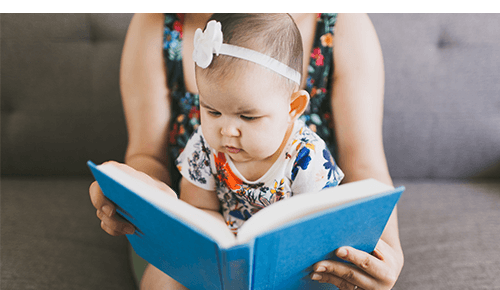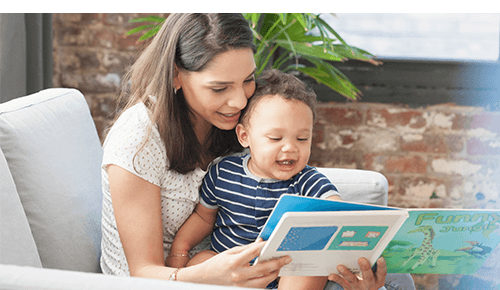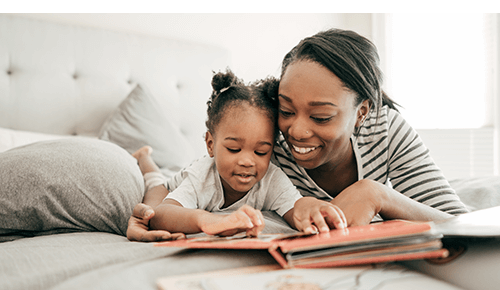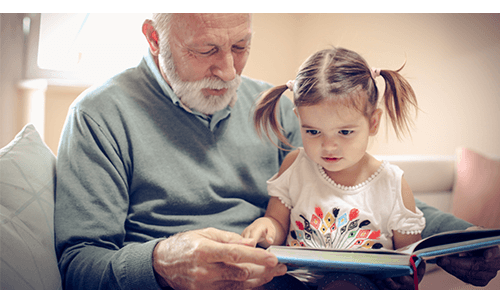“Once upon a time…in a land far, far away…”
“Guess how much I love you?”
“Brown Bear, Brown Bear, what do you see?”
Studies have shown that reading to your baby is crucial for language development, which includes the sounds and rhythms of speech, vocabulary and communication skills. Reading also helps to stimulate your baby’s imagination and creates an invaluable bonding experience for you both.

Birth to six months
Although babies from birth to six months are still developing their vision, it is still an excellent time to begin to read to them. Choosing books with little or no text and big, high-contrast, colorful pictures is best. Board books and cloth picture books are great for newborns. Reading at this stage is more about the tone of your voice, and being near you, than the actual story.
Six months to 12 months
Between six months and a year, your baby will start to interact more with you when you read to him. Grasping at pages or interacting with books that have mirrors, puppets or sounds will become part of your reading time. Most babies will try to put these books into their mouths so you may want to continue to use board books, books with heavy-duty pages or washable cloth books.
At this stage, babies also begin to recognize the meaning of words that relate to their everyday lives. If you are reading a story about “mommy and baby”, point to yourself when you read “mommy” and point to your baby when you read “baby.” This will help your child understand that illustrations represent real objects.
12 to 18 months
As your baby approaches one year to 18 months, they may try to mimic your speech or your words as you read to them; encourage them to do this. Point to an object in the book and ask “What is this?” or “Who is this?” By 18 months, your child may be able to answer these questions with a word, and you can begin to expand their vocabulary by adding verbs and adjectives. For example, you ask your child, “What is this?” and they’ll answer “House.” You can explain, “Yes, it’s a big, blue house.”
Toddlers
Many toddlers find a consistent reading routine calming and will often ask for the same book or story to be read to them over and over again. The repetition is more comfortable for your child and may help him with absorbing new information and remembering new words.
You should avoid using books on tape or videos as a substitute for your own voice. It’s the time you are spending with your baby that is most valuable. Your baby will respond to the attention they get from you, more than the information in the book. Don’t worry about trying to teach sounds and letters from the start. The more you read to your child, the more they will begin to pick these skills up naturally. Teaching your child to enjoy reading is the real lesson.






